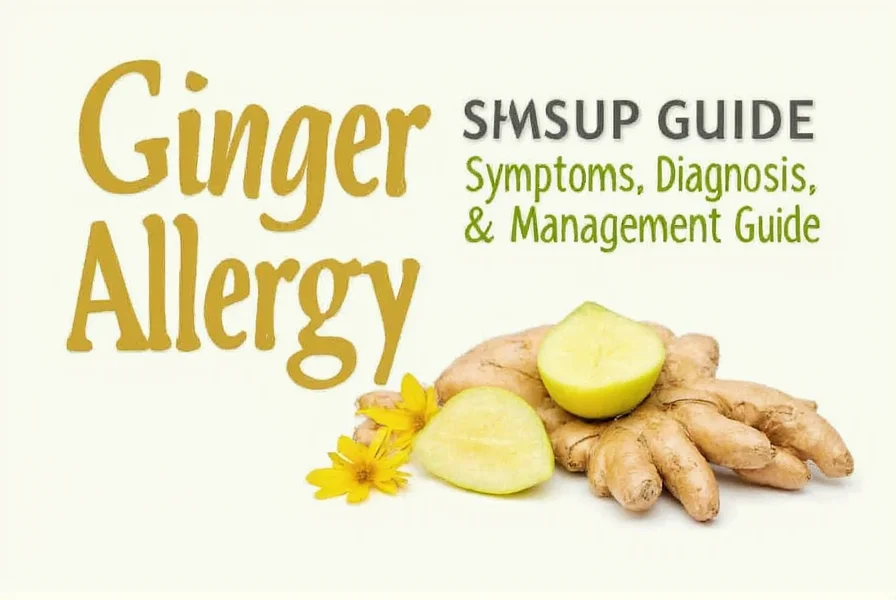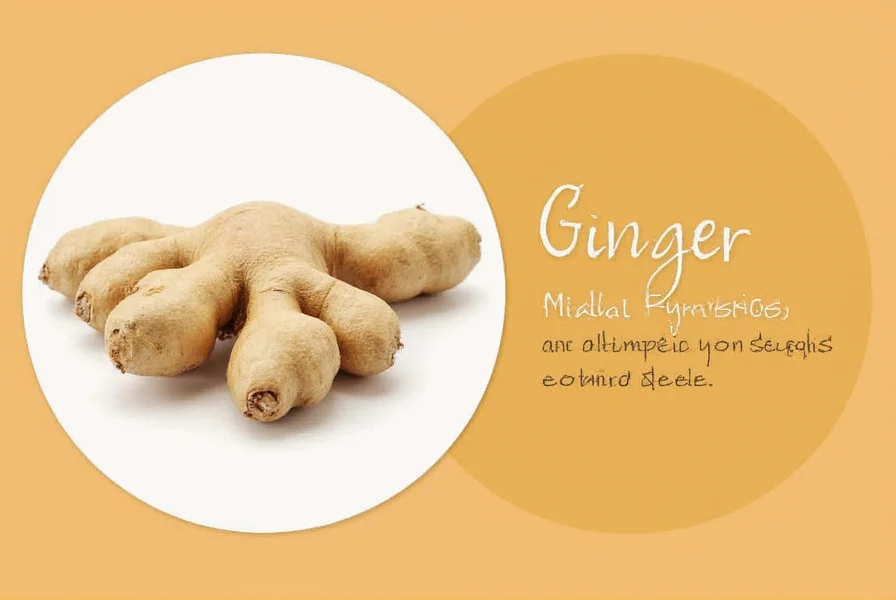Understanding ginger allergy symptoms and proper management is crucial for those affected by this uncommon but potentially serious condition. Unlike ginger intolerance, which involves digestive issues without immune system involvement, a true ginger allergy triggers an immune response that can escalate quickly.
Recognizing Ginger Allergy Symptoms
Ginger allergy symptoms typically appear within minutes to two hours after exposure and can include:
- Skin reactions: Hives, itching, or eczema
- Respiratory issues: Wheezing, nasal congestion, or difficulty breathing
- Oral symptoms: Tingling or itching in the mouth
- Gastrointestinal problems: Nausea, vomiting, or diarrhea
- Cardiovascular symptoms: Dizziness or drop in blood pressure
- Severe cases: Anaphylaxis requiring immediate epinephrine treatment
Unlike ginger allergy vs intolerance reactions, true allergies involve the immune system and can worsen with subsequent exposures. Intolerance typically causes only digestive discomfort without immune system activation.

Diagnosing Ginger Allergy
Proper diagnosis of how to diagnose ginger allergy requires medical evaluation by an allergist. Common diagnostic methods include:
- Skin prick testing with ginger extract
- Specific IgE blood testing for ginger antibodies
- Oral food challenge under medical supervision (the gold standard)
- Detailed symptom and exposure history analysis
Self-diagnosis is strongly discouraged, as symptoms may overlap with other conditions. Keeping a detailed food and symptom diary can help your healthcare provider make an accurate assessment when evaluating potential symptoms of ginger allergy.
Effective Ginger Allergy Management
Once diagnosed, managing ginger allergy requires a comprehensive approach:
| Management Strategy | Implementation Tips |
|---|---|
| Avoidance | Read all food labels carefully; ginger appears in unexpected products like cereals, crackers, and even some medications |
| Emergency Plan | Carry epinephrine auto-injector if prescribed; wear medical alert identification |
| Dining Out | Communicate allergy clearly to restaurant staff; avoid Asian cuisines where ginger is commonly used |
| Substitutions | Use alternatives like galangal (if not cross-reactive) or other non-allergenic flavorings |
Hidden Sources of Ginger
Identifying foods that contain ginger requires vigilance, as it appears in many unexpected products:
- Processed foods: Baked goods, cereals, snack bars, and salad dressings
- Beverages: Ginger ale, certain teas, craft beers, and some fruit juices
- Personal care products: Shampoos, conditioners, and skincare products
- Medications: Some cold remedies and digestive aids
- Asian cuisine: Particularly prevalent in Chinese, Japanese, and Indian dishes
When examining ingredient lists, watch for alternative names including:
- Zingiber officinale (botanical name)
- Ginger root
- Ginger extract
- Candied ginger
- Ginger flavoring

Cross-Reactivity and Related Allergies
Some individuals with ginger allergy cross-reactivity may experience reactions to related plants in the Zingiberaceae family, including:
- Turmeric
- Galangal
- Cardsmom
However, cross-reactivity isn't universal. Many people with ginger allergy can safely consume these related plants. Consult your allergist about testing for potential cross-reactivities when developing your ginger allergy treatment options plan.
When to Seek Medical Attention
Seek immediate medical care if you experience:
- Difficulty breathing or swallowing
- Swelling of the face, lips, or throat
- Dizziness or loss of consciousness
- Rapid heartbeat
- Severe abdominal pain with vomiting
For milder reactions, contact your healthcare provider to discuss appropriate treatment and prevention strategies. Never ignore recurring symptoms that might indicate symptoms of ginger allergy, as reactions can become more severe with subsequent exposures.
Living Well with Ginger Allergy
With proper diagnosis and management, most people with ginger allergy can live safely and comfortably. Key strategies include:
- Educating family, friends, and coworkers about your allergy
- Working with a registered dietitian to ensure nutritional balance
- Carrying emergency medication as prescribed
- Staying informed about new research on managing ginger allergy
- Joining support groups for people with food allergies
Frequently Asked Questions
How common is ginger allergy compared to other food allergies?
Ginger allergy is relatively uncommon compared to major food allergens like peanuts, tree nuts, or shellfish. Exact prevalence data is limited, but it's considered a rare food allergy. Most cases are reported in individuals with existing food allergies or atopic conditions.
Can you suddenly develop a ginger allergy as an adult?
Yes, it's possible to develop a ginger allergy at any age, including adulthood. Food allergies can emerge unexpectedly, even to foods you've consumed without issues previously. If you experience new symptoms after consuming ginger, consult an allergist for proper evaluation.
Are there reliable home tests for ginger allergy?
No, there are no reliable home tests for ginger allergy. Accurate diagnosis requires medical evaluation by an allergist using skin prick tests, blood tests, or supervised oral food challenges. Home testing kits are often inaccurate and can lead to unnecessary dietary restrictions or false reassurance.
Can cooking or processing ginger reduce its allergenicity?
Unlike some food allergens, ginger's allergenic proteins are generally heat-stable, meaning cooking or processing doesn't reliably reduce its potential to cause allergic reactions. Some individuals might tolerate cooked ginger better than raw, but this varies and shouldn't be assumed without medical guidance.
Is ginger allergy typically lifelong or can it be outgrown?
Unlike some childhood food allergies that may be outgrown, ginger allergy often persists throughout life. However, individual cases vary, and some people may experience reduced sensitivity over time. Regular follow-up with an allergist is recommended to monitor your specific situation and determine if retesting might be appropriate.











 浙公网安备
33010002000092号
浙公网安备
33010002000092号 浙B2-20120091-4
浙B2-20120091-4